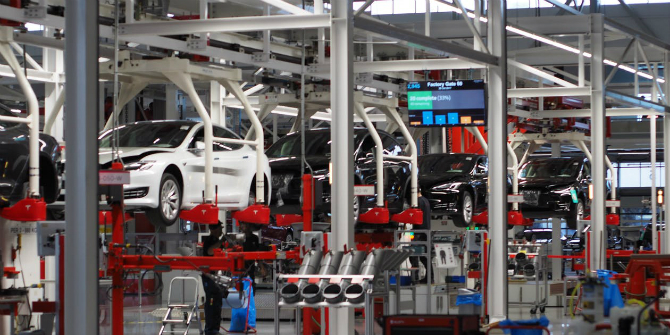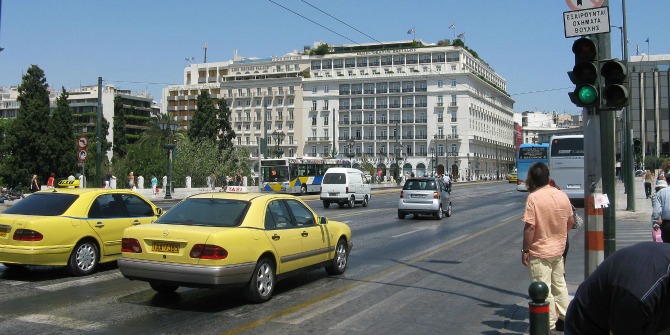
Some members of Theresa May’s Cabinet are pushing for a “soft” Brexit, which would allow remaining close to the EU’s single market and customs union. Others favour a “hard” Brexit and aim to strike a trade deal similar to CETA, the agreement concluded between the EU and Canada. Multinational corporations with plants in the UK favour a soft Brexit. In a leaked report, the Japanese government points out that 879 Japanese companies, including manufacturing giant Hitachi and carmakers Honda, Nissan and Toyota, employ 142,000 staff in Britain. It calls Mrs May to keep Britain in the EU single market and customs union, warning that Japanese companies may otherwise relocate to continental Europe.
On February 8, Mrs May met with Koji Tsuruoka, Japan’s ambassador to the UK, and representatives of major Japanese companies including carmakers, other manufacturers, and banks. Speaking after the meeting, the Japanese ambassador has reiterated the warning that his country’s firms will leave Britain if Brexit makes it “unprofitable” to stay. “If there is no profitability of continuing operation in the UK, not Japanese only, no private company can continue operations,” Mr Tsuruoka said.
Multinational companies like Honda and Nissan have used the UK as their base to serve the European market. For example, almost 80 per cent of the cars manufactured by Nissan in its plant in Sunderland are currently sold to consumers in the rest of Europe. EU membership guarantees regulatory alignment with the rest of Europe and duty-free treatment. Exit from the single market would imply that UK and EU regulations are no longer automatically aligned. More importantly, exit from the customs union would mean that multinationals may face high tariffs if they want to serve EU customers from the UK.
This may seem surprising, given that in free trade agreements like CETA tariffs on most manufacturing products are slashed to zero. The key difference is that, within a customs union, goods cross borders without any checks at all. By contrast, in a free trade agreement, shipments need to be checked by customs authorities to ensure that they conform with rules of origin (RoO). Only goods that comply with these rules are considered as originating from member countries and are granted preferential tariff treatment. Satisfying origin criteria is straightforward for simple goods like iron-ore but is much more complicated for goods like cars, which are produced in international value chains using components from around the world.
In a recent study, we show that rules of origin in free trade agreements distort global value chains, deterring final good producers from importing inputs from non-member countries. We have constructed a unique dataset of the RoO contained in NAFTA, the world’s largest free trade agreement: for every final good, we can trace all the inputs that are subject to RoO requirements; similarly, we can link every intermediate good to the final goods that impose RoO restrictions on its sourcing. Exploiting cross-product and cross-country variation in treatment over time, we show that NAFTA RoO led to a sizeable reduction in imports of intermediate goods from third countries relative to NAFTA partners. In terms of magnitude, our estimates imply that imports of affected intermediate goods from non-NAFTA countries would have been around 45 per cent higher in the absence of RoO.
Our study can help to explain why Japanese multinationals may pull out of the UK in case of a hard Brexit. Companies like Honda and Nissan rely on global supply chains. For example, key components for the models they produce in the UK are imported from Japan. Right now, they can automatically sell the cars they produce in the UK to the rest of the EU at zero tariffs. In the case of a UK-EU free trade agreement, they would face a tradeoff, if they decide to remain in the UK: stop importing key components from Japan and other non-member countries, to comply with rules of origin and obtain duty free treatment; or keep their global value chains in place, but face a 10% tariff when exporting their cars from the UK to the EU. Relocating to continental Europe would allow them to remain in the customs union, avoiding this tradeoff.
Leaving the customs union would thus be more problematic than envisaged by both voters and politicians at the time of the Brexit vote. It would not only raise the possibility a hard border between Northern Ireland and the Republic, endangering the reconciliation process between them; but it may also lead multinationals to move out of UK, resulting in the loss of thousands of jobs. It is then not surprising that Jeremy Corbyn has called for the UK to be in a permanent customs union with the EU.
If, as it seems likely, the government decides to go for hard Brexit, it should make sure that the rules of origin it negotiates with the EU as part of the new trade deal are as flexible as possible, to minimise the distortion of global supply chains and the risk of relocation of multinationals. The devil is in the detail: what threshold of minimum domestic content is agreed on cars may, for example, decide whether companies like Honda and Nissan remain in the UK or move to France or Germany.
♣♣♣
Notes:
- This blog post appeared originally on LSE Brexit. It is based on the “From Final Goods to Inputs: The Protectionist Effect of Rules of Origin”, LSE’s Centre for Economic Performance Discussion Paper No 1525, co-authored with Manuel García Santana, Laura Puccio and Roberto Venturini (forthcoming in the American Economic Review).
- The post gives the views of its authors, not the position of LSE Business Review or the London School of Economics.
- Featured image credit: Car factory, by Jens Mahnke, under a CC0 licence
- When you leave a comment, you’re agreeing to our Comment Policy
 Paola Conconi is Professor of Economics at the Université libre de Bruxelles (ULB) and Visiting Professor at the London School of Economics. She is the Director of the CEPR Research Network on Global Value Chains, Trade and Development.
Paola Conconi is Professor of Economics at the Université libre de Bruxelles (ULB) and Visiting Professor at the London School of Economics. She is the Director of the CEPR Research Network on Global Value Chains, Trade and Development.





